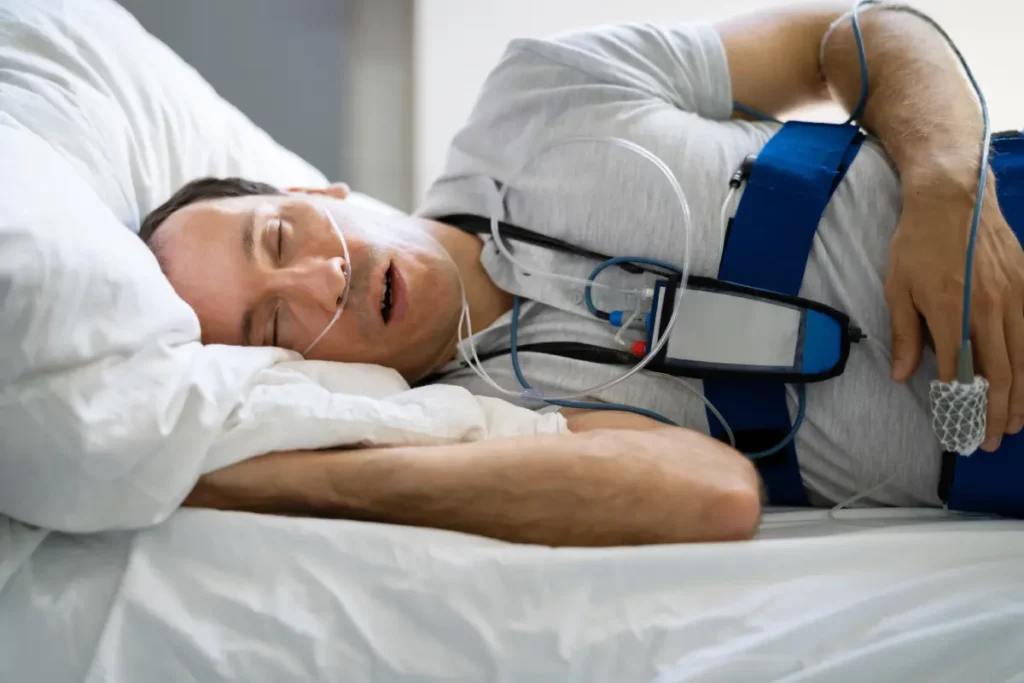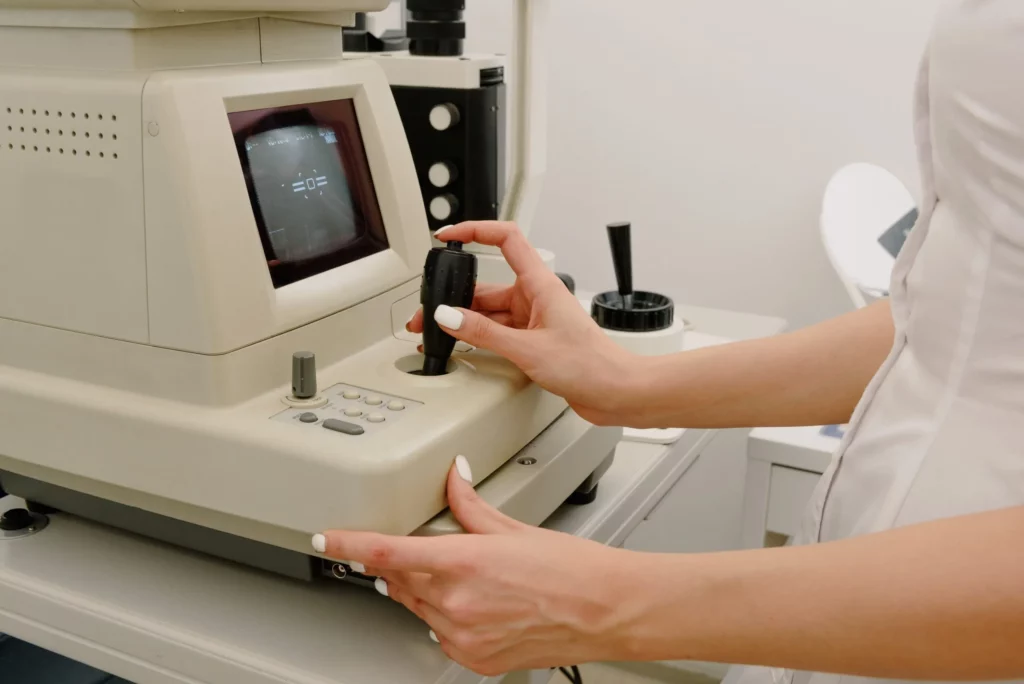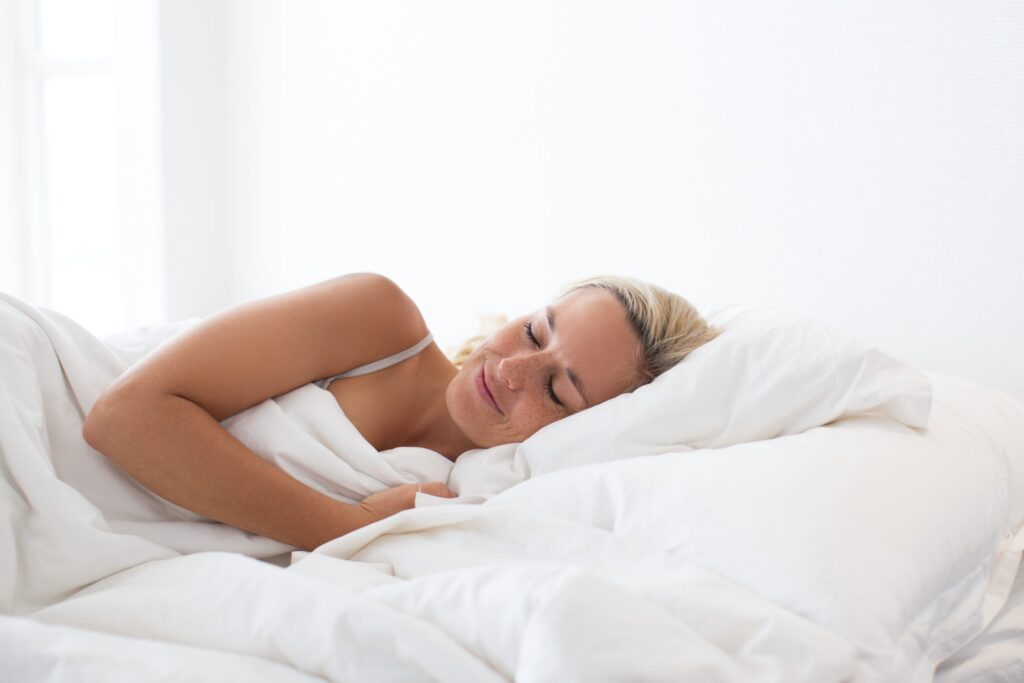Sleep studies are an important diagnostic tool in modern healthcare. They are designed to monitor and analyse an individual’s sleep patterns, breathing, and physical responses during rest. These comprehensive assessments help medical professionals identify various sleep disorders, including sleep apnoea, insomnia, and other conditions that can significantly impact health and quality of life.
Hobart has seen a significant increase in sleep study services, with many residents seeking professional evaluation of their sleep patterns. This rise in demand is due to a greater awareness of sleep-related health issues and the availability of both in-lab and home-based sleep studies. These services offer Hobart residents convenient options for understanding and addressing their sleep concerns.

This guide answers key questions about sleep studies in Hobart, providing essential information for:
- Diagnostic procedures and methodologies
- Available testing options
- Medicare coverage and costs
- Finding qualified providers
- Understanding test results
Whether you’re experiencing disrupted sleep patterns, daytime fatigue, or seeking professional guidance for better rest, this comprehensive resource delivers valuable insights into sleep studies across Hobart. From preparation requirements to result interpretation, readers will discover the critical information needed to make informed decisions about their sleep health journey.
Understanding Sleep Studies: A Comprehensive Guide
Sleep studies, also known as polysomnography, are diagnostic tests designed to monitor and record various physiological activities during sleep. These comprehensive examinations measure multiple body functions, including:
Sleep studies Hobart are an important step towards achieving optimal health and well-being. These assessments provide valuable information about sleep patterns and potential disorders that may impact daily life. The range of services offered by accredited sleep clinics in Hobart allows individuals to access professional care and specific treatment solutions.
- Brain wave patterns (EEG)
- Eye movements
- Heart rate and rhythm
- Breathing patterns
- Blood oxygen levels
- Body position
- Muscle activity
Types of Sleep Studies
There are two main types of sleep studies: in-lab studies and home-based studies.
1. In-Lab Studies
In-lab studies are conducted in specialised sleep centres and involve continuous monitoring by trained technicians. During these studies, multiple sensors and equipment are attached to the patient to gather detailed data about their sleep patterns. In-lab studies are ideal for diagnosing complex sleep disorders and offer higher accuracy in data collection.
2. Home-Based Studies
Home-based studies, on the other hand, use portable monitoring devices that allow patients to conduct the test in the comfort of their own homes. These studies are self-administered and typically involve fewer sensors compared to in-lab studies. Home-based studies are suitable for suspected cases of sleep apnoea and benefit from the natural sleep environment of the patient.

Common Diagnostic Tests
Sleep studies incorporate several specific diagnostic measurements to assess sleep quality and identify potential disorders:
1. Respiratory Monitoring
During a sleep study, various aspects of a person’s breathing are monitored to detect any irregularities or disruptions. This includes measuring airflow through the nose and mouth, tracking chest movements, monitoring oxygen saturation levels in the blood, and detecting snoring events.
2. Neurological Assessment
The neurological assessment component of a sleep study focuses on evaluating brain activity during sleep. This is done by placing electrodes on the scalp to record electrical signals produced by the brain (EEG). The EEG data helps identify different sleep stages (such as REM and non-REM) and can also reveal any abnormal brain activities or movement disorders.
3. Cardiovascular Monitoring
Cardiovascular monitoring involves assessing various parameters related to heart health during sleep. This may include measuring heart rate variability (the variation in time between successive heartbeats), recording blood pressure changes throughout the night, conducting electrocardiogram (ECG) recordings to evaluate heart rhythms, and measuring pulse rates. Learn more about heartbeats on https://www.nhlbi.nih.gov/health/heart/heart-beats
The diagnostic equipment used during sleep studies is non-invasive, allowing patients to sleep while connected to monitoring devices. Modern technology has made these devices more comfortable and user-friendly, particularly for home-based studies. The collected data helps sleep specialists identify various sleep disorders, including sleep apnoea, insomnia, narcolepsy, and periodic limb movement disorder.
For more information on how these sleep studies work, you can refer to specialized resources that provide detailed insights into the process and its benefits.
Benefits of Home-Based Sleep Studies
Home-based sleep studies represent a significant advancement in sleep disorder diagnostics, offering distinct advantages for patients seeking comfortable and accurate assessments.
Enhanced Comfort and Convenience
- Sleep studies conducted in familiar surroundings allow patients to maintain their regular bedtime routines
- No need to stay overnight in unfamiliar clinical settings
- Reduced anxiety associated with medical environments
- Flexible scheduling options to suit individual lifestyles
Cost-Effective Solution
- Lower operational costs compared to laboratory-based studies
- Reduced staffing requirements translate to savings for patients
- Medicare rebates available for eligible diagnostic tests
- Minimal travel expenses and accommodation costs
Natural Sleep Environment Assessment
- Authentic sleep patterns recorded in patient’s regular sleeping environment
- Minimal disruption to normal sleep habits and routines
- Accurate representation of typical sleep behaviours and disturbances
- Realistic assessment of environmental factors affecting sleep quality
The portable monitoring devices used in home-based studies capture essential sleep data while allowing patients to sleep in their own beds. These devices track vital measurements including:
- Breathing patterns
- Heart rate
- Blood oxygen levels
- Body position
- Snoring intensity
Home sleep studies prove particularly beneficial for patients with mobility issues, those living in remote areas, or individuals with commitments that make laboratory visits challenging. The combination of technological reliability and environmental familiarity creates optimal conditions for accurate sleep disorder diagnosis.
Interpreting Sleep Study Results: What You Need to Know
Interpreting sleep study results requires expert analysis by registered sleep specialists who review complex data collected during the assessment. These medical professionals examine various physiological parameters, including:
- Brain wave patterns (EEG)
- Eye movements
- Heart rate and rhythm
- Blood oxygen levels
- Breathing patterns
- Body movements
Based on these measurements, the specialist creates a detailed report identifying specific sleep disorders or disturbances. This analysis determines the severity of any conditions present and guides appropriate treatment recommendations. To read more about disorders click here.
Common Sleep Study Findings
- Sleep apnoea severity (mild, moderate, severe)
- Sleep efficiency percentage
- Number of sleep disruptions
- Duration of different sleep stages
- Presence of unusual movements or behaviours
Treatment Options
Sleep specialists recommend personalised treatment plans based on the diagnostic findings. These may include:
- CPAP Therapy: Continuous Positive Airway Pressure devices deliver pressurised air through a mask, keeping airways open during sleep
- Mandibular advancement devices
- Lifestyle modifications
- Sleep hygiene improvements
- Weight management strategies
- Surgical interventions in specific cases
CPAP therapy stands as the gold standard treatment for sleep apnoea. The sleep specialist determines the optimal pressure settings for each patient through careful analysis of sleep study data. Regular follow-up appointments ensure the effectiveness of prescribed treatments and allow for necessary adjustments.
Air Liquide Healthcare’s sleep specialists provide comprehensive result interpretation services in Hobart, enabling accurate diagnosis and implementation of effective treatment strategies. Their expertise allows them to work closely with patients to:
- Explain study findings in clear, understandable terms
- Discuss available treatment options
- Address concerns and questions
- Create individualised management plans
- Monitor treatment progress
- Make necessary adjustments to ensure optimal outcomes
For those seeking sleep study services in Perth, Brisbane, Melbourne, or Sydney, there are comprehensive resources available to assist with understanding and managing sleep disorders.
Accessing Sleep Study Services in Hobart: A Step-by-Step Guide
Hobart residents can access sleep study services through multiple healthcare providers, including Air Liquide Healthcare’s network of sleep clinics. These facilities offer comprehensive sleep assessments through established brands such as SNORE Australia, Healthy Sleep Solutions, and Sleep Disorder Australia.
Medicare-Eligible Services
- Bulk billing options available for patients with valid Medicare cards
- Additional rebates for pensioners and healthcare card holders
- Private health insurance gap coverage at participating clinics
Getting Started: The Referral Process
1. Initial GP Consultation
- Book an appointment with a local GP
- Discuss sleep-related symptoms and concerns
- Complete preliminary health assessments
2. Specialist Referral
- Obtain a written referral for a sleep study
- Choose between participating sleep clinics
- Schedule an initial consultation with a sleep specialist
3. Pre-Study Assessment
- Medical history review
- Discussion of sleep patterns
- Selection of appropriate study type (home-based or in-lab)
For those seeking sleep study services in Hobart, there are several local options available:
- Royal Hobart Hospital Sleep Investigation Unit
- Private sleep clinics in central Hobart
- Mobile services for remote areas
The referral process typically takes 1-2 weeks, with most clinics offering flexible appointment times. Sleep study appointments can be scheduled for weeknights or weekends to accommodate work commitments. Many Hobart clinics provide comprehensive support services, including equipment familiarisation sessions and ongoing monitoring programs.
If you’re considering exploring sleep study services outside of Hobart, similar options are available in other cities such as Adelaide and Canberra. For more information on these services, you can refer to the sleep study services in Adelaide and sleep study services in Canberra links respectively.
Medicare and Private Health Coverage for Sleep Studies: What You Should Know
Medicare provides substantial support for sleep studies when specific MBS (Medicare Benefits Schedule) guidelines are met. Patients with a valid referral from their GP can receive Medicare rebates for:
- Initial diagnostic sleep studies
- Follow-up studies when clinically necessary
- Home-based sleep studies conducted by approved providers
The Medicare rebate typically covers 75% to 85% of the scheduled fee for sleep studies. Eligible patients may access bulk-billing services through participating clinics, eliminating out-of-pocket expenses.
Private health insurance offers additional coverage options for sleep-related treatments. Many health funds include CPAP therapy under their extras packages, with benefits such as:
- Equipment purchase or rental subsidies
- Mask and accessories replacement
- Regular maintenance services
The level of coverage varies between insurance providers and specific policies. Premium or comprehensive extras packages generally provide higher annual limits for CPAP equipment and related services.
Private health insurance members should contact their provider to understand:
- Annual claim limits for sleep apnea equipment
- Waiting periods for CPAP therapy benefits
- Required documentation for claims
- Network providers offering preferred rates
Some insurance providers partner with specific sleep clinics to offer members reduced gap payments or enhanced benefits for sleep-related services.
Conclusion
The benefits of addressing sleep issues go beyond just improving sleep:
- Enhanced daytime alertness and cognitive function
- Reduced risk of health complications
- Improved emotional stability
- Better physical performance
- Increased workplace productivity
With flexible options for both in-lab and home-based studies, accessible Medicare coverage, and expert support throughout the diagnosis and treatment process, residents of Hobart can take charge of their sleep health. The journey towards restful sleep and a better quality of life begins with a simple sleep study – a small investment that brings significant benefits for long-term health and vitality.

